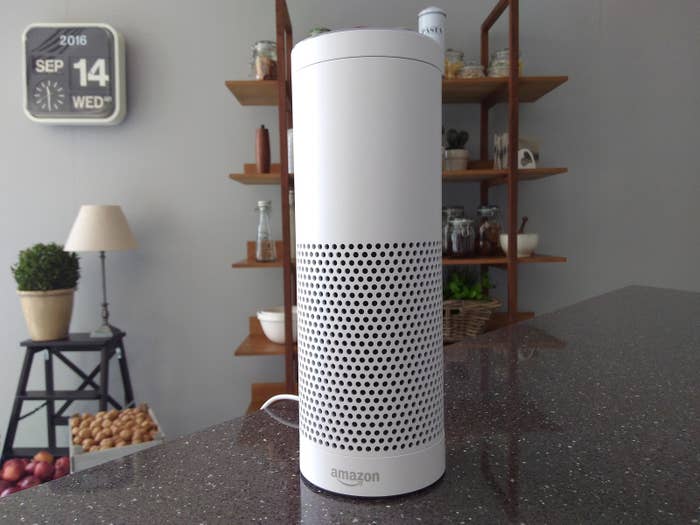
Amazon is turning to the First Amendment to support its refusal to give law enforcement recordings and responses captured by the Alexa voice assistant on an Amazon Echo speaker that may help police solve a murder case.
After James Bates was charged with murdering his colleague Victor Collins in Walmart's hometown of Bentonville, Arkansas in November 2015, police issued a search warrant for the contents of Bates' Echo speaker. But Amazon has fired back with a 90-page brief contending that the records Alexa collected are protected free speech. Forbes has reproduced the document in full.
Bates also owned an LG Nexus cell phone, which, as Amazon noted in its brief, could contain his Echo's recording if he had downloaded the Alexa app. Amazon has already handed over Bates’ purchase history and account information to law enforcement, but it has declined to release his speaker’s records.
In its brief, Amazon argued, "Such government demands inevitably chill users from exercising their First Amendment rights to seek and receive information and expressive content in the privacy of their own home, conduct which lies at the core of the Constitution."
As the Echo becomes more popular — the company sold out of the speaker during the 2016 holidays despite increase production — Bates' case holds implications for a growing number of American homes. If Amazon loses its fight and is forced to give police Bates' Alexa recordings, it will set a significant precedent. Knowledge that the government and police may gain access to consumers' Echo recordings could damage trust in Alexa, a product so beloved that people sometimes propose to the AI voice assistant.
Amazon cited Riley v. California, a 2014 US Supreme Court case ruling that warrantless searches of electronic devices and digital records are unconstitutional, to say, "searching Alexa’s recordings is not the same as searching a drawer, a pocket, or a glove compartment. Like cell phones, such modern 'smart' electronic devices contain a multitude of data that can 'reveal much more in combination than any isolated record,' allowing those with access to it to reconstruct '[t]he sum of an individual’s private life.'"
Amazon's legal team also argued, "At the heart of that First Amendment protection is the right to browse and purchase expressive materials anonymously, without fear of government discovery."
Amazon is attempting to classify Alexa's recordings, responses, and transcripts as equivalent to the purchase or viewing of "expressive materials" — things like books, music, and podcasts — under the law. The team cited the high-profile inquiry into former president Bill Clinton during his impeachment to make its case: Investigators demanded that a bookstore hand over records of purchases made by Monica Lewinsky, but courts ruled that her "freedom of inquiry," protected by her right to freedom of speech, required law enforcement demonstrate that they really, truly needed those records.
Lewinsky eventually provided the records willingly, but the precedent for "heightened demonstration of need" stood. It's a rule that demands that law enforcement show a "compelling need" for the information and that there is a "'sufficient nexus' between the information sought and the underlying inquiry of the investigation."
Amazon also argued that Alexa's speech should be heard as coming from Amazon itself: "the response constitutes Amazon's First Amendment-protected speech." It equated Alexa's speech to Baidu's search results, which a US judge ruled were editorial judgments and therefore protected free speech in Zhaing v. Baidu, where New York residents sued Baidu for censoring articles about China's democracy movement. A New York judge declined to hear the case.
(The warrant for the Echo recordings, issued December 4, 2015, has actually expired under Arkansas law. But Amazon has chosen not to challenge it under that law, favoring the First Amendment approach.)
Neither Amazon nor the Bentonville police immediately responded to request for comment.
